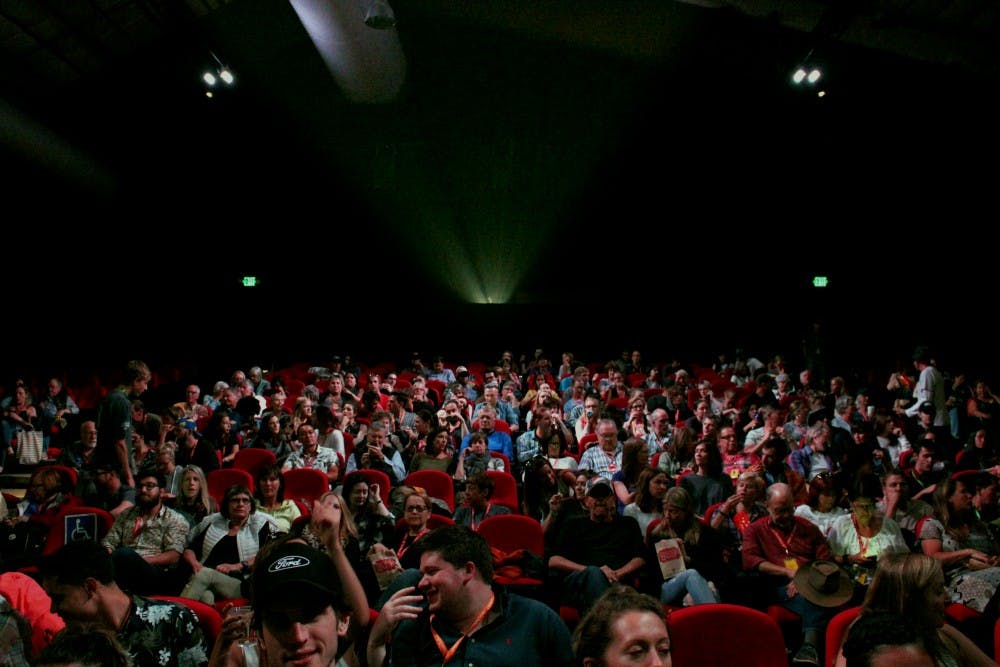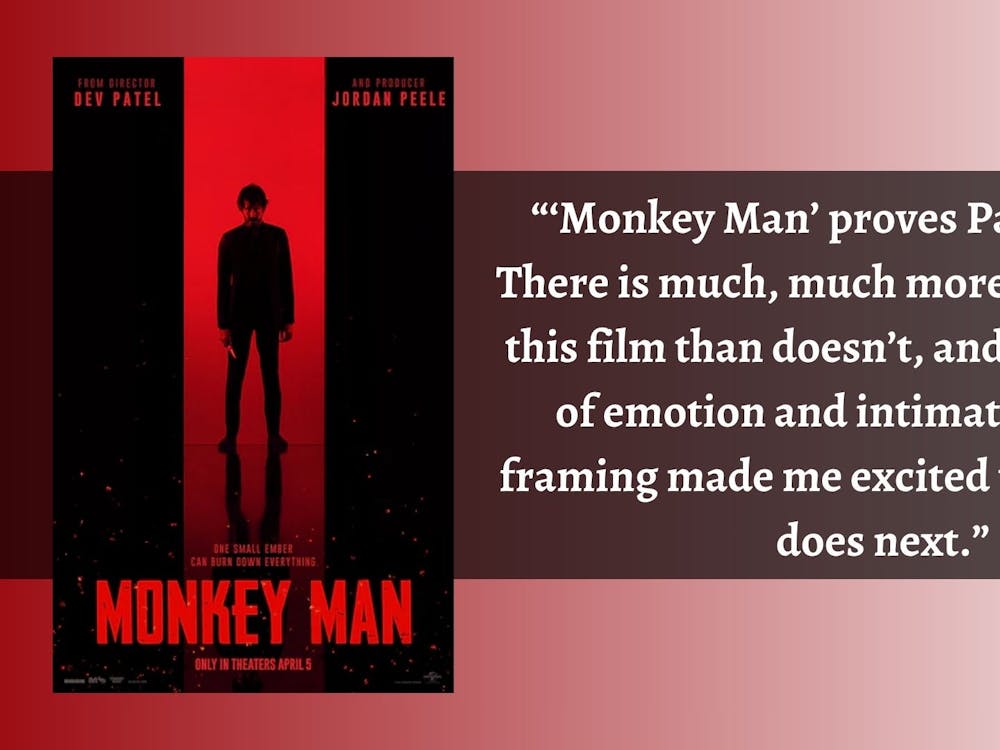By Hailey Hirata, Staff Writer
There's something in Amy Adams' eyes.
About an hour and a half into her new film "Arrival," there is an overhead shot that captures Louise Banks (Adams) as she stares up at her alien visitors, coming face-to-face with the foreign entity for the first time. As she speaks to them, the camera remains motionless, glued on the close-up of Adams' face.
This is the moment when the film begins to reveal itself, when it asks the audience to take a massive leap and blindly trust its somewhat casuistic logic. It is the part when the aliens' purpose on earth and Louise's singular role in it is revealed, where we learn the reason for her sporadic memories and the point of their cryptic communications. It is the part where the film could fall apart, the last wooden brink being placed atop a wobbly Jenga tower.
Luckily for the audience, the film does not fall apart; the Jenga tower remains intact and the saga continues, for it is in the hands of the magnificent Amy Adams and her illustrious eyes. For as the film pours on the space-time continuum logic and ideas of fate and destiny, we see the shot of Adams' eyes, eyes filled with wonder, curiosity, love, fear, confusion, admiration and conviction. In this one singular shot, Adams' eyes command us to believe. And luckily for us, we do.
Based on Ted Chiang's short story "Story of Your Life," "Arrival" follows Louise Banks, an American linguist who is called upon by the United States army (led by a raspy Forest Whitaker) to establish communication between one of the 12 alien space pods that has mysteriously landed on Earth. Rounding out the team of Americans is Jeremy Renner who plays Ian Donnelly, a mathematician tasked with deciphering the extraterrestrial technology.
Stepping into the theater, one might be tempted to think that they have been here before; the mysterious aliens invade the planet, the world goes on high alert, explosions ensue and a group of Americans save the day.
However from "Arrival's" opening minutes, director Denis Villeneuve makes it clear that this is new territory. Unlike films such as "Independence Day" and "War of the Worlds," Villeneuve's film is quiet, imbued with a poetic quality as it slowly peals back the elaborate elements of its narrative.
With a creative and well thought out head-scratcher of a plot, the film does something not many science fiction films do -- integrate the human with the other. For while it devotes a good chunk of time puzzling the brain with talk of space-time and threats of nuclear war, the film also weaves in moments of subtle and quiet humanity that work to remind the viewer of what is at stake.
What develops is an interesting dichotomy, one that creates a suspenseful intensity, grounded and based in human emotion that continuously swells with each high stakes decision before exploding in the film's game-changing climax (which will both boggle the mind and break the heart).
Aiding its effectiveness are both the film's original score (an ambient drone-filled symphony penned by Johann Johannsson, an Icelandic composer whose arrangement of sounds is epically operatic) and its cinematography (handled exquisitely by Bradford Young).
However, the film's greatest asset is its central character, Louise Banks, and her portrayer, Amy Adams. Breaking with normative convention, Louise is refreshingly more than just a tick on the gender equality box. She is smart, caring, witty, broken, strong and most importantly deeply developed by screenwriter Eric Heisserer.
Enjoy what you're reading?
Signup for our newsletter
Much like the fictional world it presents, the film rests heavily and almost completely on the shoulders of Adams and particularly on her ability to engage the audience in the existence of the extraterrestrials while simultaneously grounding them in the humanity that she is trying to save.
In a performance that is equal parts nuanced and expressive, Adams completely immerses herself in the character created for her by Villeneuve, turning out a performance marked with subtlety as throughout the film she brings Louise's internalized emotions to the precipice of expression before finally, in the film's closing moments, allowing them to flood out of her, washing over both the character and the audience she has enchanted.
This is not to say that "Arrival" is without its flaws. As with most science fiction films, the viewer leaves with more questions than they began with and there are instances where well-written dialogue and character development are sacrificed for studio-tested, audience-approved cliches (the storyline of a very vanilla Renner being the most obvious).
However, none of this prevents "Arrival" from being a great film. It's poetic and cyclical, venturing into the world of the unknown but tied tightly to a distinctively poignant human quality. It is a rare film that harmonizes the known and unknown and one that no being, terrestrial or otherwise, should miss.




